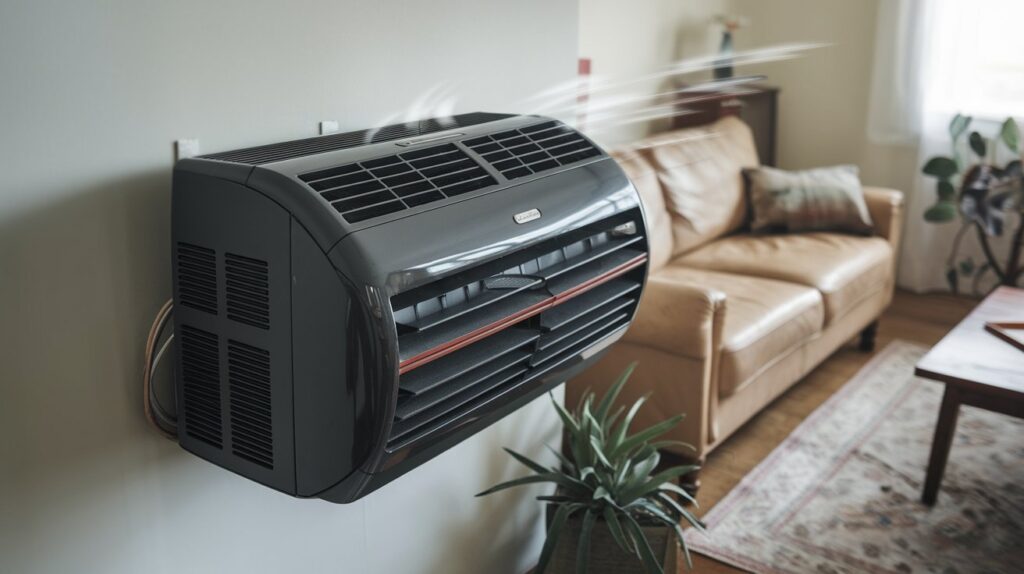A strange noise coming from your air conditioner is more than just an annoyance-it’s often a cry for help. Many homeowners tend to overlook odd sounds until the issue worsens, turning a simple repair into a costly headache. Whether it’s a rattle, screech, or low hum that wasn’t there before, strange noises can point to underlying problems that compromise efficiency and comfort. Your AC system is a complex machine, and even the slightest sound change can be a sign that something inside isn’t functioning properly. We will explore what these noises might mean, how to interpret them, and why timely attention matters. This is for anyone who has ever asked themselves, “Was that noise normal?” or “Should my AC be doing that?” Knowing what to listen for and what it could indicate might just save your summer-and your budget.
Common AC Noises and What They Might Be Telling You
Banging or Clanking
If your AC starts producing loud banging or clanking noises, it’s likely a sign of a loose or broken component. This could be something as significant as a loose crankshaft, connecting rod, or piston pin inside the compressor. Alternatively, it might be due to an imbalanced indoor blower or outdoor fan. These parts move at high speeds, and even a slight imbalance can create a rhythmic banging or clanking sound as the system runs. If left unchecked, this issue could escalate, potentially damaging other components and leading to system failure. Timely AC repair in Arlington is essential in these situations to prevent minor issues from turning into major repairs.
In many cases, this type of noise begins subtly, gradually increasing in volume as the part loosens further. It’s worth turning the unit off and having it inspected promptly to avoid extensive damage. Although some homeowners may attempt to tighten parts themselves, misdiagnosis or improper handling could exacerbate the problem. It’s essential to view banging noises as a warning bell that immediate action is needed.
Buzzing or Humming
Buzzing or humming might seem less dramatic, but it’s just as important to investigate. A buzzing AC could be dealing with electrical issues like loose wiring, a failing capacitor, or a malfunctioning contactor relay switch. These components play crucial roles in the system’s startup and operation. If your unit is humming without turning on, that’s often the sign of a faulty capacitor. A failing motor or unbalanced fan blades can also create a continuous buzzing sound, particularly when the system is overworking to cool your space. Sometimes buzzing noises come from debris or dirt accumulating around the outdoor unit, obstructing airflow and forcing the fan or motor to work harder. A dirty coil, clogged air filter, or refrigerant leak might also be at play. While the sound itself isn’t always dangerous, the underlying issue can lead to poor performance or even total breakdown if ignored.
Screeching or Squealing
A high-pitched screech or squeal is often the loudest-and most jarring-noise your AC can produce. Typically, these sounds are associated with belt issues or motor problems. Older systems may use a belt that can wear out or become misaligned, creating a squealing sound similar to what you’d hear from a car with a slipping serpentine belt. In more modern units, the issue may be coming from a malfunctioning fan motor or compressor motor bearing. If your AC screeches only during startup, that could be an early sign of motor trouble that might worsen with use. Persistent squealing means the system is in distress, and while it might still be operating, the internal wear and tear is likely accelerating. Lubrication might help in the short term, but if components are already worn down, replacement is usually required.
Clicking or Tapping
Clicking is a tricky sound because some clicking is normal. Your AC unit clicks when it starts and stops-this is the thermostat communicating with the system. However, repeated or constant clicking could mean something more concerning. It might point to a malfunctioning thermostat or an electrical issue involving the control board or relays. Loose fan blades or debris inside the unit can also produce clicking or tapping sounds, especially if something small like a twig or a bit of insulation is interfering with the fan’s movement. If the clicking is coming from inside your indoor unit, you might be dealing with a misaligned component that’s coming into contact with another part. Over time, this can damage both parts and even lead to a complete shutdown.
Whistling or Hissing
A whistling or hissing sound is often linked to airflow issues or refrigerant leaks. If the sound is high-pitched and continuous, it may be coming from a clogged filter or a ductwork issue that’s restricting the normal flow of air. When air is forced through a tight space, it can produce a whistling noise similar to wind squeezing through a small crack. A hissing noise, especially from the outdoor unit or refrigerant lines, could suggest a leak. Refrigerant leaks are not only damaging to your AC’s performance but can also pose environmental and health concerns if not handled properly. Hissing may also come from an internal valve leak or compressor problem, both of which require attention from a qualified technician.
Strange sounds from your air conditioning system are not just part of its personality-they’re its way of telling you something’s wrong. Whether it’s a sharp squeal, a subtle buzz, or a loud bang, each noise offers a clue about your AC’s health and performance. Waiting too long to investigate the noise can transform a simple repair into a major replacement.
The key is to stay attentive, respond quickly, and treat any unfamiliar sound as a valuable message from your system. Keeping your AC running smoothly doesn’t just ensure comfort-it also preserves the lifespan and efficiency of your investment. So next time your air conditioner starts talking, be sure to listen. Your cool, quiet home may depend on it.

